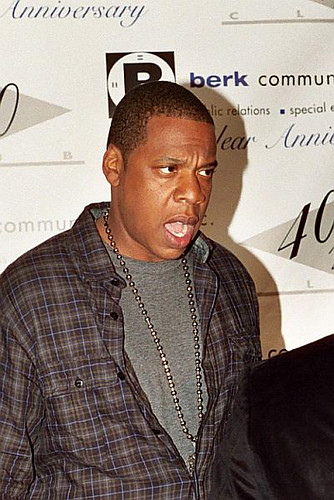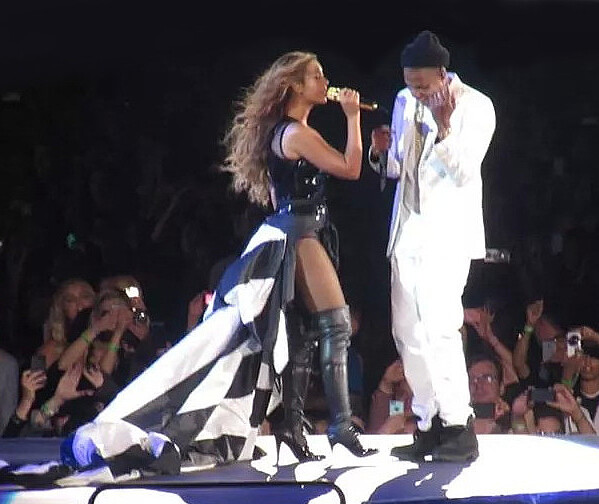
In the dazzling, often overwhelming world of celebrity, few couples command as much global attention as Beyoncé and Jay-Z. As music royalty, their lives are under a perpetual microscope, a reality amplified exponentially when they welcomed their three incredible children: Blue Ivy, and twins Rumi and Sir. While we adore seeing glimpses of the talented Blue Ivy on stage or Rumi at the Super Bowl, the Carters have meticulously crafted a shield of privacy around their brood, a testament to their unwavering commitment to providing their kids with as normal a childhood as possible.
Raising children in the blinding glare of paparazzi flashes and constant public scrutiny is an unparalleled challenge. For Beyoncé and Jay-Z, this isn’t just about avoiding unwelcome headlines; it’s about safeguarding their children’s peace, mental well-being, and future. From the moment Blue Ivy made her grand entrance into the world, surrounded by a controversial shroud of secrecy, to the strategic moves made years later, like trademarking Blue Ivy’s name, every decision reflects a deliberate effort to control their narrative and protect their family’s sanctity.
We’re peeling back the layers to reveal the complex, often unseen, strategies the Carters employ to keep their children grounded amidst unparalleled fame. Get ready to explore the fascinating, sometimes controversial, and always impactful measures this power couple has implemented to ensure their little ones can thrive, away from the relentless demands of the spotlight. Here’s a deep dive into the initial critical steps and philosophies that have defined their approach to family privacy.
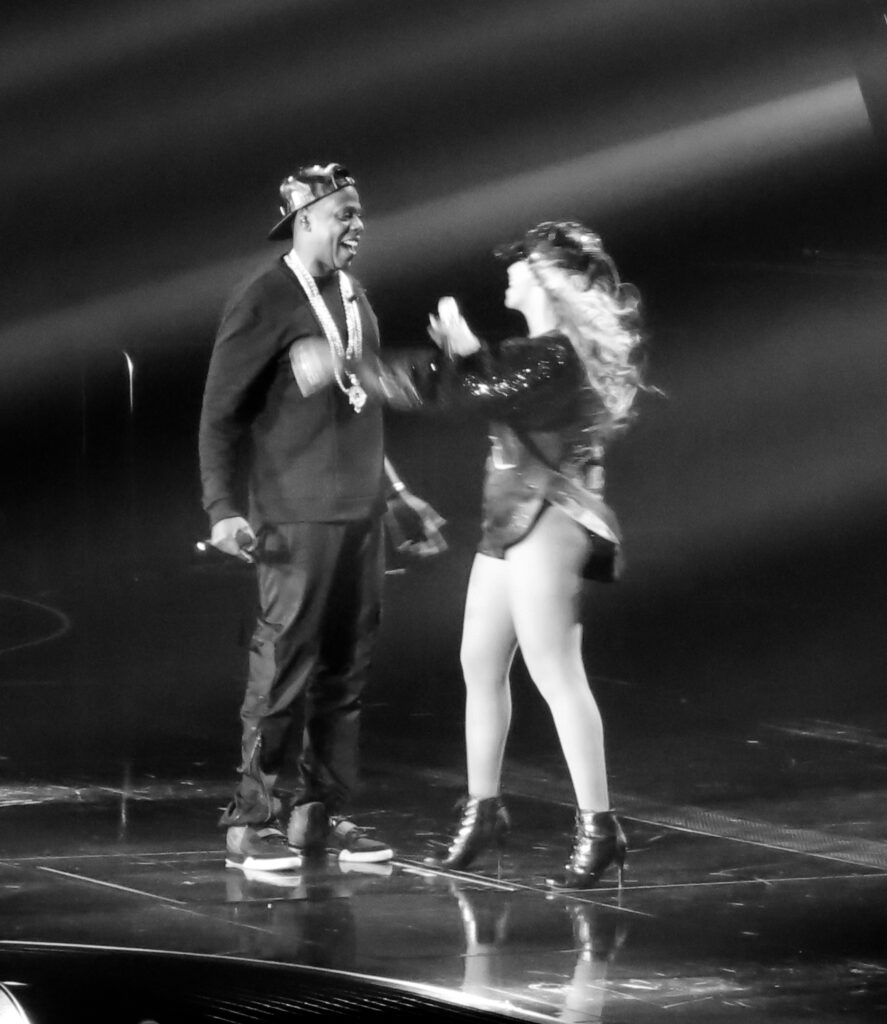
1. **The Controversial Security Measures at Blue Ivy’s Birth: A Blueprint for Privacy**The arrival of Blue Ivy Carter in January 2012 at Lenox Hill Hospital in New York City wasn’t just a birth; it was a global event, shrouded in intense privacy and security measures that immediately set the tone for the Carters’ approach to their children’s public lives. Reports from the time painted a picture of extraordinary protocols, suggesting that the hospital had implemented security on a scale rarely seen for a private citizen, even one as famous as Beyoncé.
These measures reportedly included the installation of curtains and partitioning entire floors within the prestigious Manhattan facility. Security guards were stationed vigilantly at elevators and stairwells, creating a visible and formidable barrier. Additionally, surveillance cameras were reportedly heightened, and access in maternity areas was severely restricted, all in a concerted effort to protect the celebrity couple and their newborn from the eager eyes of the media.
However, these stringent measures quickly became the epicenter of a public outcry, particularly from other families in the hospital. Neil Coulon, a Brooklyn man whose wife had given birth to premature twin girls in the same facility, shared a particularly devastating account. He told multiple news outlets that the overwhelming security presence made it difficult, if not impossible, for him to visit his newborns in the Neonatal Intensive Care Unit (NICU).
Coulon vividly described the emotional trauma of being repeatedly stopped from entering or exiting the NICU because areas were being cleared for Beyoncé. He articulated the profound frustration and heartbreak of feeling like a visitor in a hospital where his own babies were fighting for their lives. His powerful statement, “Three times they stopped me from entering or exiting the NICU because they were clearing the area for Beyoncé. They should have been more strategic with how they handled her security. These are newborns who need care, and you’re just creating chaos,” highlighted the raw human cost of celebrity privilege.
This incident sparked a fundamental debate about celebrity privilege versus public rights, raising serious questions about hospital priorities and patient access to critical care units. While the desire for privacy for a high-profile birth is understandable, the impact on other vulnerable families underscored the delicate balance that hospitals must strike, and how the Carters’ quest for privacy set an early, controversial precedent for their children’s protection.
2. **Lenox Hill Hospital’s Public Stance: Denying Preferential Treatment**In the wake of the intense public criticism surrounding Blue Ivy’s birth, Lenox Hill Hospital found itself compelled to address the circulating reports and concerns directly. The hospital issued a statement vehemently denying that other patients were adversely affected by the security measures implemented for Beyoncé and Jay-Z’s delivery. This official response aimed to quell the growing outrage and reassure the public about their commitment to all patients.
Hospital spokespersons insisted that the Carters received no preferential treatment during their stay. They maintained that patient care was never compromised, despite the elaborate security protocols that were visibly in place. The hospital’s statement affirmed, “We have made every effort to ensure minimal disruption to other families. No patients have been relocated, and no NICU services have been impacted,” attempting to counter the narratives presented by affected parents like Neil Coulon.
However, these official denials often stood in stark contrast to the personal accounts surfacing from within the hospital walls. Coulon’s story, alongside similar, albeit informal, complaints from other unnamed parents, continued to circulate in the media, painting a different picture. Some parents reported instances of elevators being shut down, and even nursing staff reportedly expressed frustration over the unusually tight and disruptive security protocols, suggesting a discrepancy between the hospital’s official narrative and the on-the-ground reality.
Beyond the logistical issues, the incident ignited a broader ethical discussion within the medical community. Dr. Arthur Caplan, then Director of Medical Ethics at NYU Langone Medical Center, weighed in on the controversy, articulating a critical perspective. He stated, “A hospital isn’t a luxury hotel. While everyone deserves privacy, it should never interfere with care. If a patient’s security measures affect another patient’s rights or safety, that’s unacceptable.” This expert opinion underscored the ethical tightrope hospitals walk when accommodating VIPs.
Despite the public outcry and the ethical questions raised, no legal action was ever taken against Lenox Hill Hospital following the incident. Furthermore, no formal apology was ever issued to Neil Coulon or other affected families, allowing the story to gradually fade from the headlines. However, the hospital’s public denial and the contrasting patient experiences served as a crucial early lesson in the immense pressure and scrutiny surrounding the Carters’ private family life.
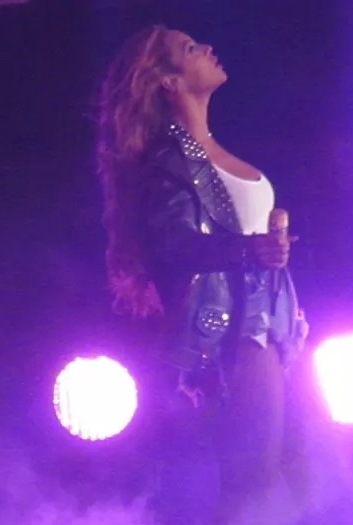
3. **Beyoncé’s Declaration: Prioritizing Normalcy and Privacy for Her Children**Beyond the headlines and hospital controversies, Beyoncé herself has articulated a clear, foundational philosophy that underpins her entire approach to parenting in the public eye. In a revealing 2024 interview with GQ Magazine, the superstar emphasized her profound dedication to ensuring her children experience a childhood as close to ordinary as possible, despite their extraordinary circumstances. This commitment forms a crucial pillar of their family’s security strategy.
“One thing I’ve worked extremely hard on is making sure my kids can have as much normalcy and privacy as possible,” Beyoncé shared, outlining her primary objective as a mother navigating global fame. This statement goes beyond merely protecting them from paparazzi; it speaks to a deeper desire for their emotional and psychological well-being, free from the constant performance that often defines celebrity life. It’s about creating a stable, grounded environment where they can simply be children.
Central to this philosophy is her conscious decision to avoid the pervasive trend of turning one’s personal life into a brand. In an age where every facet of a celebrity’s existence can be monetized, Beyoncé explicitly stated her aversion to this practice, especially when it comes to her family. She recognized the immense temptation and ease with which public figures can transform their private moments into content for public consumption, yet she actively resisted it for the sake of her children.
“It’s very easy for celebrities to turn our lives into performance art,” she noted, acknowledging the industry’s pressures. However, she quickly pivoted to her personal resolve, affirming, “I have made an extreme effort to stay true to my boundaries and protect myself and my family.” This commitment to boundaries is a proactive measure, safeguarding their peace of mind against the constant intrusion that often accompanies unparalleled fame, proving that some things are simply not for sale.
Her ultimate guiding principle, beautifully encapsulated in her own words, resonates deeply: “No amount of money is worth my peace.” This powerful sentiment highlights the non-negotiable value she places on her family’s tranquility and private sanctity. It signifies a profound understanding that while fame offers many rewards, the ultimate luxury for a celebrity family is the ability to carve out moments of genuine, undisturbed normalcy and peace, a core tenet in her approach to her children’s security.
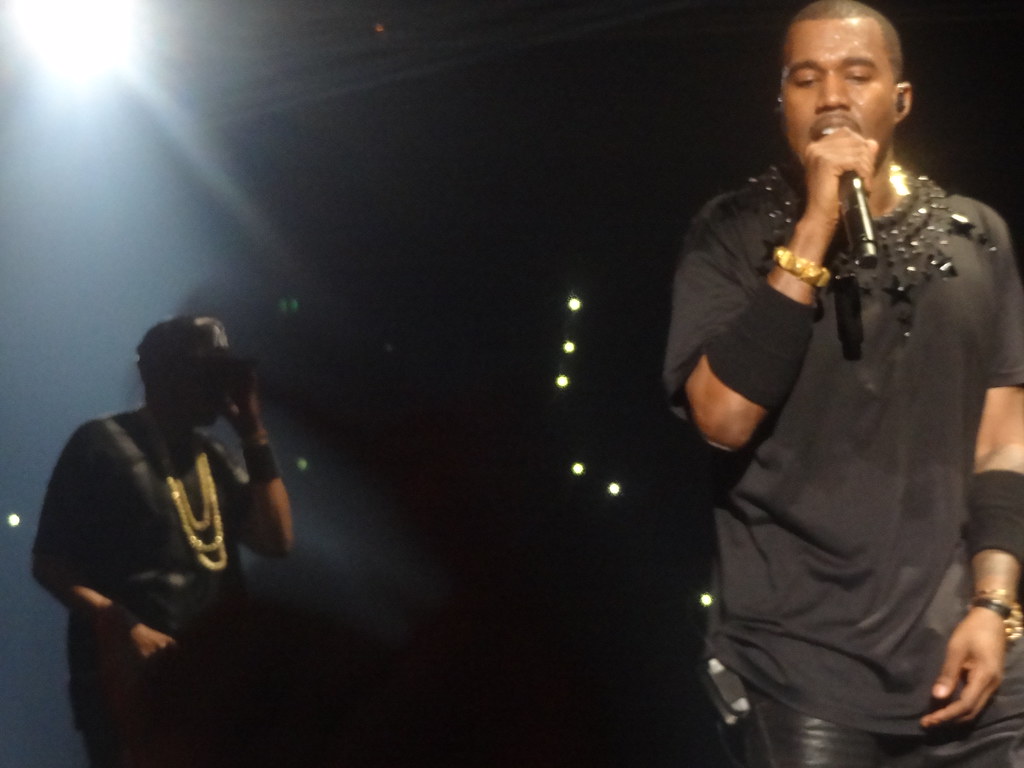
4. **Sir Carter’s Shadow: A Conscious Choice for a Private Upbringing**While Blue Ivy has gracefully embraced the spotlight, performing alongside her mother on tour, and Rumi recently made a memorable appearance at the 2025 Super Bowl, their twin brother, Sir Carter, remains largely out of the public eye. This noticeable absence has frequently sparked curiosity among fans, particularly when his sisters are seen at high-profile events with their father, Jay-Z, leading to questions like, “Where’s Sir?” This is not by accident, but a deliberate, conscious decision by his parents.
Sir’s discretion is part of a broader, intentional strategy by Beyoncé and Jay-Z to provide him with a more private upbringing, distinct from the trajectories of his more publicly visible sisters. Since their birth in 2017, the twins have, in general, rarely been seen in public. However, Sir’s personal visibility has been even more limited, underscoring his parents’ commitment to shielding him from the intense scrutiny that defines their lives.
Unlike Blue Ivy, who has been a public figure since her infancy, Beyoncé and Jay-Z have made a concerted effort to protect their twins’ privacy, with a particularly strong emphasis on Sir. His rare appearances have been confined to very specific, controlled contexts, primarily within Beyoncé’s intimate documentaries, such as “Homecoming” and “Making The Gift.” He has also appeared in extremely limited promotional content for Ivy Park, ensuring that any public exposure is curated and minimal.
This protective approach aligns perfectly with Beyoncé’s stated dedication to giving her children “as much normalcy and privacy as possible.” For Sir, this has meant consciously navigating his childhood away from the constant public gaze, allowing him the space to develop and grow without the pressures of immediate celebrity. His parents are actively shaping an environment where his individual personality, described as quiet and laid-back, can flourish undisturbed.
Ultimately, Sir Carter’s continued absence from public appearances is not an oversight but a thoughtful parental decision. It speaks volumes about the Carters’ nuanced understanding of celebrity and their determination to empower each of their children to forge their own path, whether that leads to the stage or a life lived more quietly. This strategy is a powerful testament to their commitment to tailored privacy for each child.

5. **The Twins’ Limited Exposure: Rumi and Sir’s Carefully Curated Public Lives**Since their arrival in June 2017, the twins, Rumi and Sir Carter, have been given a remarkably sheltered upbringing when it comes to public exposure. In stark contrast to their older sister, Blue Ivy, who has been accustomed to the spotlight since her birth, Beyoncé and Jay-Z have made a collective and conscious effort to minimize the twins’ visibility. This strategy reflects a deliberate choice to safeguard their earliest years from the overwhelming pressures of fame.
Fans who eagerly anticipate glimpses of the Carter children have noticed that Rumi and Sir have, indeed, “rarely been seen in public.” Their appearances have been few and far between, typically reserved for controlled environments where their parents maintain ultimate authority over what is shared with the world. This restrictive approach is a critical component of the Carters’ larger privacy framework, aiming to provide a sense of normalcy despite their extraordinary lineage.
Their most notable public exposures have been limited to specific, pre-approved media. The twins have briefly appeared in Beyoncé’s highly acclaimed documentaries, “Homecoming” and “Making The Gift.” These platforms, curated by Beyoncé herself, offered controlled, intimate peeks into their lives, but were far from typical celebrity child visibility. They also featured in limited promotional content for Ivy Park, again, within a context meticulously managed by their mother.
This careful curation is not accidental; it is a calculated measure to protect their burgeoning personalities and allow them to develop away from constant media speculation. By limiting their public presence, Beyoncé and Jay-Z are actively working to ensure that Rumi and Sir can experience childhood milestones and build their identities without the added burden of global scrutiny, affording them a crucial degree of freedom that many celebrity children do not receive.
This strategic approach reinforces Beyoncé’s earlier statements about prioritizing “as much normalcy and privacy as possible” for her children. For Rumi and Sir, this has manifested in a childhood largely protected from the paparazzi and tabloid headlines, fostering an environment where their individuality can blossom organically, rather than being shaped by public perception. It’s a testament to their parents’ commitment to providing a childhood that prioritizes peace over public spectacle, ensuring their security in the broadest sense of the word.
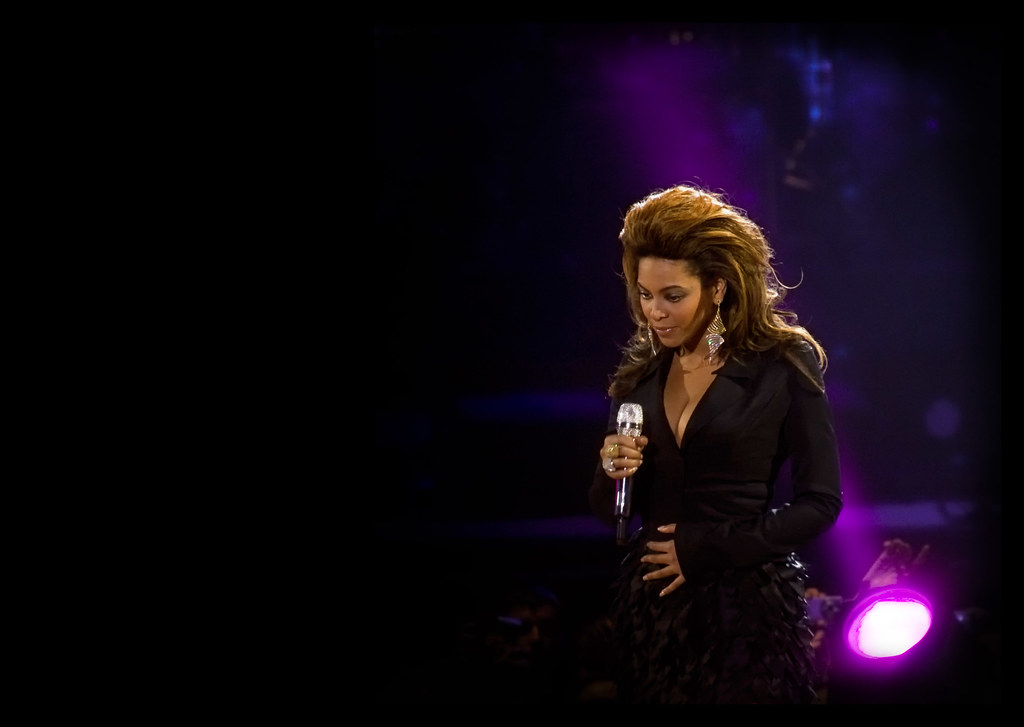
6. **Beyoncé’s Anti-Branding Stance: Protecting Family Life from Commercialization**In a world where celebrity lives are increasingly commodified, Beyoncé and Jay-Z stand out for their deliberate strategy of actively avoiding the commercialization of their personal family life. This anti-branding stance, particularly concerning their children, is a powerful and proactive measure designed to protect their family’s integrity and peace. Beyoncé eloquently articulated this philosophy in her 2024 GQ Magazine interview, offering deep insight into her motivations.
“One thing I’ve worked extremely hard on is making sure my kids can have as much normalcy and privacy as possible, ensuring my personal life isn’t turned into a brand,” she stated, underscoring the intrinsic link between privacy and avoiding the pitfalls of relentless commercialization. For Beyoncé, safeguarding her children’s well-being means drawing a clear line between her professional persona and the sacred space of her family, refusing to allow the latter to be exploited for public consumption or financial gain.
She keenly observes the entertainment industry’s pervasive tendency to blur these lines, noting, “It’s very easy for celebrities to turn our lives into performance art.” This awareness drives her conscious effort to resist this gravitational pull. Instead of capitalizing on every family moment, which many public figures readily do, Beyoncé makes an “extreme effort” to uphold strict boundaries, distinguishing between what is public and what remains intimately private.
Her dedication to protecting her family from becoming a ‘performance art’ spectacle is not merely a preference; it is a strategic defense mechanism. By not turning their lives into a brand, she shields her children from the immense pressure of living a perpetually curated existence, where every moment could potentially be analyzed, judged, or monetized. This allows them the freedom to make mistakes, to grow, and to simply exist without the omnipresent weight of public expectation.
This principled stand is deeply rooted in her unwavering belief that “No amount of money is worth my peace.” This declaration encapsulates the core of her anti-branding philosophy. It asserts that the emotional and psychological well-being of her family is invaluable and non-negotiable, far outweighing any potential financial benefits that might come from turning her children’s lives into a public spectacle. It is, perhaps, the ultimate security measure against the corrosive effects of uncontrolled fame.
Now, as we delve deeper, it becomes clear that Beyoncé and Jay-Z’s commitment to their children’s well-being extends far beyond initial security protocols. Their long-term strategy involves a meticulously planned approach to public introductions, robust legal protections, and a parenting philosophy that celebrates each child’s individuality while safeguarding their collective peace. These measures aren’t just about paparazzi; they are about shaping futures, building legacies, and ensuring their children can truly thrive in a world that constantly demands their attention.
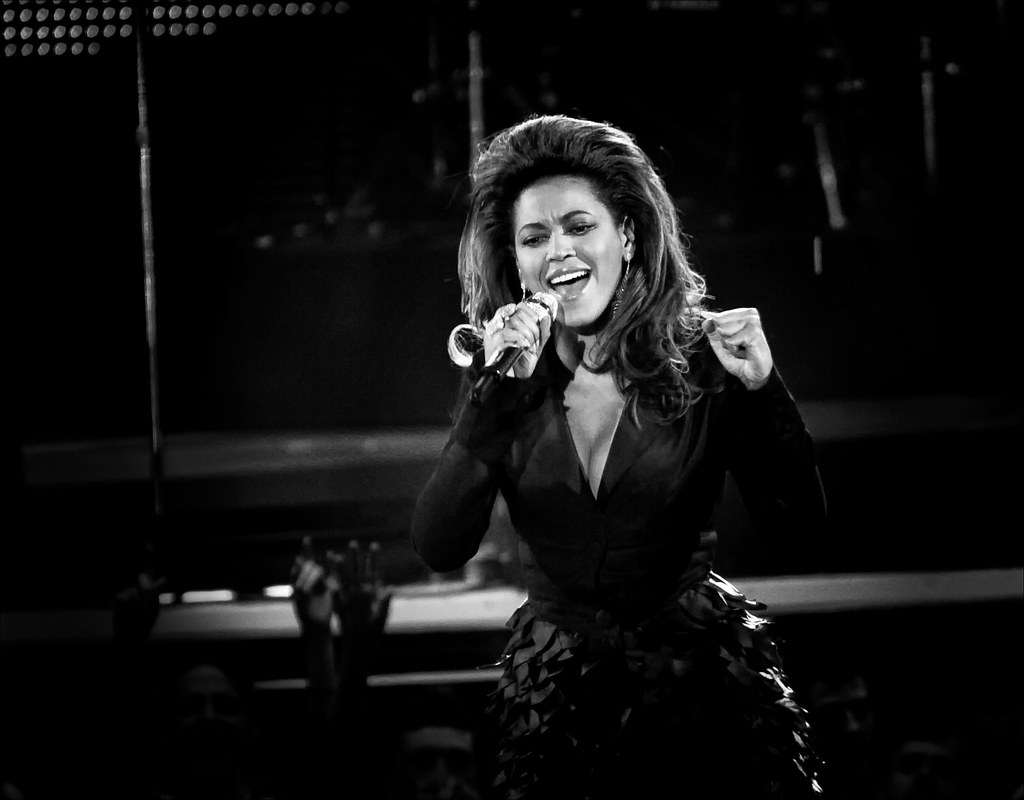
7. **Trademarking Blue Ivy’s Name: Securing a Future Brand**One of the most forward-thinking and robust measures Beyoncé has undertaken is the strategic trademarking of her eldest daughter, Blue Ivy Carter’s name. This isn’t merely a formality; it’s a proactive legal shield designed to protect Blue Ivy’s future career and personal brand from potential exploitation, demonstrating a profound understanding of intellectual property in the celebrity sphere. It’s a testament to Beyoncé’s ‘keen awareness of personal branding and legacy building,’ as noted by PR expert Grayce McCormick, founder of Lightfinder PR.
Indeed, the journey to secure this trademark wasn’t without its challenges, with Beyoncé navigating two previous failed attempts due to various legal hurdles. Yet, her unwavering determination ultimately paid off, highlighting the significance she places on this protective measure. The approval now allows Blue Ivy to have a career that is described as ‘robust’ yet ‘adaptable to future aspirations,’ granting the family unprecedented control over her image and any commercial ventures tied to her identity.
This legal maneuver acts as a crucial layer of security, safeguarding Blue Ivy’s reputation and financial independence from potential misuse or scandal. In a world where celebrity names are often co-opted or exploited, trademarking ensures that any use of her name must be approved by the family, aligning perfectly with their broader narrative of empowerment and ownership. It’s a powerful statement about controlling one’s destiny from a young age, ensuring her path is authentically her own.
McCormick further elaborated on the strategic brilliance of this move, stating that it ‘demonstrates her understanding of intellectual property in a way that shields her family and aligns with her brand narrative of empowerment and ownership.’ This legal protection provides a formidable defense against unauthorized commercialization, allowing Blue Ivy to explore her talents, whether in entertainment, fashion, or other fields, without the constant threat of opportunists. It ensures that as she steps further into the public eye, her identity remains firmly under her family’s control.
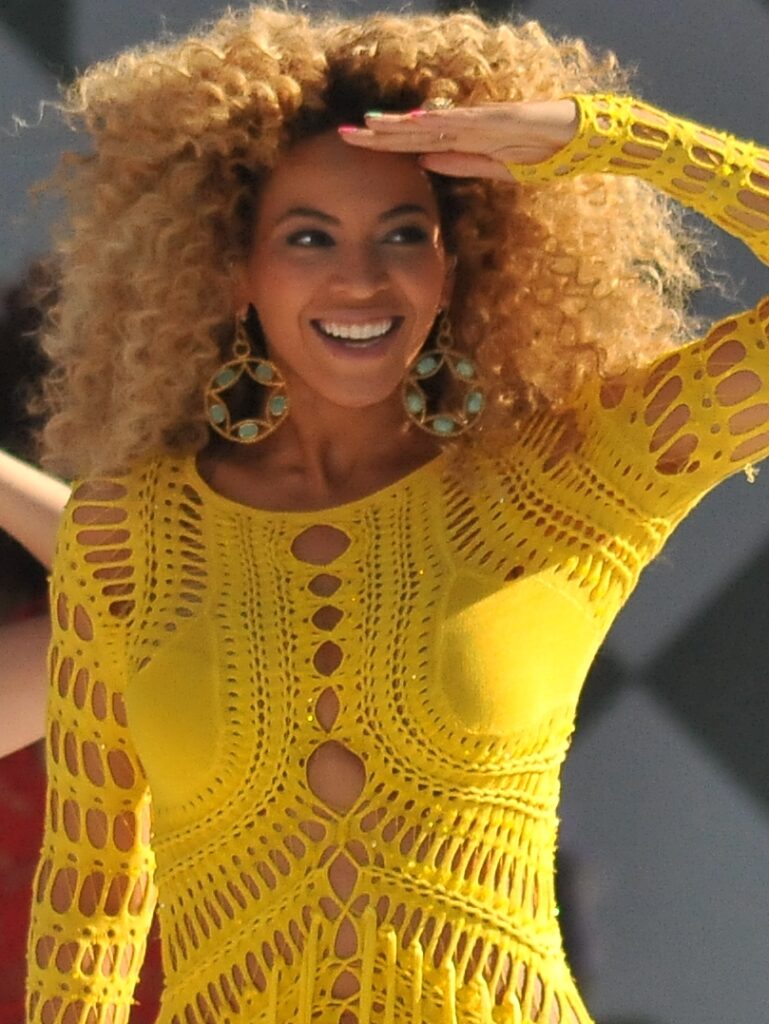
8. **Curating Blue Ivy’s Public Presence: Strategic Introductions to the Spotlight**While Blue Ivy has a more prominent public presence than her younger siblings, her visibility is far from accidental; it is a meticulously curated and strategically managed introduction to the spotlight. At 12 years old, Blue Ivy has already begun to carve out her own space, but always under the careful guidance and watchful eyes of her parents, ensuring her exposure is both positive and purposeful, reflecting a mindful approach to celebrity upbringing.
Her notable appearances, such as the ‘surprise performances’ during the Renaissance World Tour, were pivotal moments in this carefully planned unveiling. These were not random instances but calculated opportunities to introduce Blue Ivy to the public consciousness as an ’emerging talent,’ allowing her to gain experience and confidence on a global stage. The roar of the crowd and the adoring fans served as a powerful, yet controlled, initiation into the world of entertainment royalty.
Beyond the stage, Blue Ivy’s parents have also facilitated other significant, high-profile engagements that contribute to building her brand in a positive light. She has lent her voice to narrate a New York Times best-selling book, showcasing her artistic versatility beyond music. Furthermore, her landing a lead role in the upcoming ‘Mufasa’ project signals a deliberate path towards establishing her as a multifaceted talent in her own right, broadening her creative horizons.
This strategic exposure is a sophisticated security measure in itself. By actively shaping the narrative around Blue Ivy and controlling the platforms through which she is seen and heard, Beyoncé and Jay-Z pre-empt negative speculation and cultivate a strong, positive public image. It’s about empowering her with valuable experiences and opportunities, allowing her to explore her talents while simultaneously protecting her from the uncontrolled and often harsh glare of unsolicited media attention.

9. **Tailoring Public Visibility Based on Individual Personalities: The Rumi and Sir Approach**A profound aspect of the Carters’ long-term privacy strategy lies in their nuanced understanding that one size does not fit all when it comes to their children’s public lives. This is nowhere more evident than in the strikingly different approaches taken for the twins, Rumi and Sir, whose public visibility is carefully tailored to their individual personalities and temperaments, fostering their unique development away from the omnipresent demands of global fame.
Sir Carter, in particular, remains largely out of the public eye, a conscious decision by his parents that aligns perfectly with his quiet and introspective nature. His grandmother, Tina Knowles, previously revealed to EOnline that Sir ‘is more into books and electronics’ and is ‘very quiet,’ adding that he ‘does all of the numbers stuff, so he’s not into fashion as much,’ and is ‘very, very smart.’ These insights paint a picture of a child who thrives away from the bustle, and his parents honor that.
Jay-Z himself has also offered glimpses into Sir’s persona, sharing that the twins’ names reflect their personalities, with Sir carrying himself with a ‘strong presence.’ This deep parental understanding translates directly into their security measures, ensuring that Sir’s privacy is meticulously guarded. His rare appearances, largely confined to intimate documentaries or controlled promotional content, are a testament to this commitment to allowing him space to grow undisturbed by the public gaze.
In contrast, while still enjoying a largely private upbringing compared to many celebrity children, Rumi Carter has recently stepped out more prominently. She joined her father, Jay-Z, and sister Blue Ivy at the 2025 Super Bowl, an event that instantly captured global attention. This strategic, yet still limited, public appearance hints at a slightly different trajectory for Rumi, perhaps reflecting her own burgeoning personality or a gentle, measured expansion of her public exposure as she grows.
This individualized approach underscores Beyoncé’s stated dedication to giving her children ‘as much normalcy and privacy as possible,’ allowing each child to ‘forge their own path’ whether that leads to the stage or a life lived more quietly. It’s a sophisticated parenting philosophy that prioritizes their children’s innate needs and personalities, acting as a deeply personalized form of security against the homogenizing pressures of celebrity life.

10. **Integrating Family into Professional Life: Beyoncé’s ‘Kids Come Everywhere’ Policy**Beyoncé’s unique parenting philosophy, eloquently articulated in a previous interview, reveals another crucial aspect of her children’s security: the constant integration of her family into her demanding professional life. This isn’t just about convenience; it’s a deliberate strategy that keeps her children grounded and connected, minimizing separation and providing a stable, familiar environment even amidst the whirlwind of global superstardom.
As Beyoncé shared with GQ, ‘My kids come with me everywhere I go. They come to my office after school, and they are in the studio with me. They are in dance rehearsals.’ This constant presence means her children are not merely shielded from her work but are intimately familiar with it, learning the rhythms and demands of her career firsthand. This immersion normalizes her extraordinary life for them.
This ‘kids come everywhere’ policy acts as a powerful internal security measure. By keeping her children physically close, Beyoncé maintains direct oversight of their immediate environment and interactions, reducing vulnerabilities that might arise from distance. It ensures they are surrounded by trusted individuals within her professional circle, creating a consistent bubble of protection that travels with them.
Furthermore, this integration fosters a deeper understanding and connection within the family. As she noted, ‘It’s natural that they would learn my choreography.’ This shared experience strengthens family bonds and allows the children to develop an appreciation for their mother’s work, transforming potential stressors into shared adventures. It’s a proactive way to manage the demands of fame, ensuring her children feel loved, secure, and part of her journey, rather than being overshadowed by it.
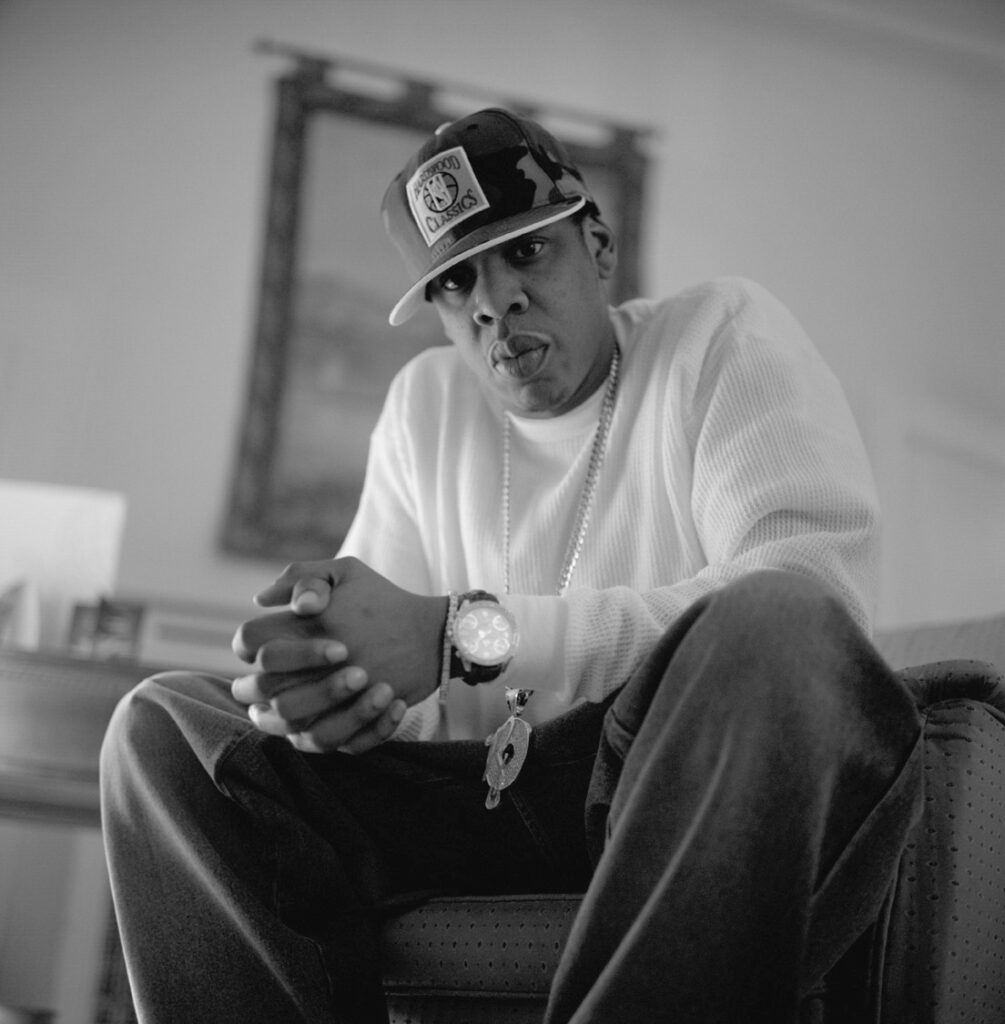
11. **Shielding Children from External Negative Narratives: A Unified Front Against Public Attacks**
While many of the Carters’ security measures are proactive, a significant aspect of their long-term strategy involves navigating and neutralizing external negative narratives, particularly those that target their children. The disturbing comments made by Kanye West on X, claiming Beyoncé used IVF to conceive Rumi and Sir, serve as a stark reminder of the malicious and false public attacks they must protect their family from, necessitating a unified and often silent defense.
Kanye West’s history of public rants and personal attacks against Jay-Z and Beyoncé is well-documented, from his outrage over their absence at his 2014 wedding to Kim Kardashian, to his claims about North West and Blue Ivy not having a playdate. He even infamously ranted onstage in 2016, claiming the power couple didn’t reach out after Kardashian was robbed, and Jay-Z later called him ‘insane’ in his ‘Kill JAY-Z’ song. This pattern underscores a persistent source of hostile public narrative the Carters contend with.
In the face of such inflammatory and often baseless claims, the Carters’ established privacy framework and anti-branding stance serve as an invaluable defense. By meticulously controlling their narrative, limiting public exposure, and refusing to turn their personal lives into ‘performance art,’ they reduce the surface area for such attacks to gain traction or legitimacy. Their consistent policy of remaining silent on such matters, as they did with the Blue Ivy birth controversy, effectively starves these narratives of further oxygen.
Ultimately, this strategy is about safeguarding their children’s emotional well-being and public image from unsolicited and often fabricated claims. By presenting a unified, private family front, Beyoncé and Jay-Z ensure that external negativity, however loud or sensational, struggles to penetrate the protective shield they have meticulously constructed around their children. It’s a testament to their unwavering commitment to protect their little ones from the darker, more invasive side of celebrity.

12. **The Evolving Strategy of Empowerment: Fostering Independent Paths for Each Child**The sum of Beyoncé and Jay-Z’s multifaceted security measures culminates in an evolving strategy of empowerment, designed not just to shield their children from the glare of fame, but to equip them with the resilience and autonomy to forge their own independent paths. Their approach is a dynamic blend of protection, guidance, and strategic exposure, ensuring that Blue Ivy, Rumi, and Sir can truly thrive on their own terms, away from the relentless demands of the spotlight.
This long-term vision is evident in the distinct trajectories being shaped for each child. Blue Ivy is being carefully introduced to public life, building her own brand with legal protections and curated opportunities that celebrate her burgeoning talents. Rumi and Sir, while enjoying a deeply guarded privacy, are still subtly integrated into their parents’ lives and exposed in ways that respect their individual personalities, especially Sir’s preference for quiet pursuits.
Beyoncé’s powerful declaration, ‘No amount of money is worth my peace,’ encapsulates the core of this philosophy. It underscores that the ultimate luxury for this global power couple is the ability to provide their children with a childhood where peace, normalcy, and authentic self-development are paramount. Every measure, from the initial hospital security to trademarking and tailored public appearances, is rooted in this fundamental belief, ensuring their children’s emotional and psychological well-being above all else.
By building this robust foundation of privacy, controlled exposure, and unwavering parental guidance, Beyoncé and Jay-Z are investing in their children’s agency. They are not merely protecting them from the outside world; they are actively shaping an environment where each child can discover their own voice, develop their own interests, and ultimately decide their own relationship with fame, whether that means embracing the spotlight or choosing a quieter existence. It’s an empowering legacy.
In a landscape where celebrity children often become extensions of their parents’ brands, the Carters stand out as architects of a more thoughtful, tailored, and values-driven approach. Their comprehensive security measures are a masterclass in celebrity parenting, setting a new precedent for how to raise children in an unprecedented spotlight, ensuring their children’s security in the broadest, most profound sense of the word. They truly are building a secure future, one step at a time.


